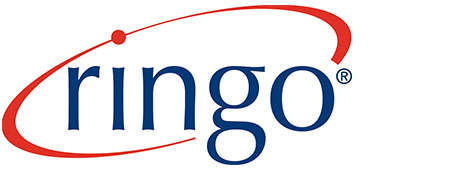10 Benefits of Working with a Vendor-Neutral VMS

Independence from staffing firms ensures the primary focus of a VMS is delivering the most efficient workforce management program possible. Unlike supplier-led programs that prioritize filling orders with their own candidates, a vendor-neutral approach empowers hospitals and healthcare organizations to decide how to prioritize vendors and release orders, creating a level playing field that enhances competition and drives down costs.
This vendor neutrality attracts a broader vendor pool, including those hesitant to work with platforms owned by staffing firms, increasing visibility and reducing time to fill positions. Suppliers trust vendor-neutral platforms because they know their candidates won’t end up in a competitor’s database, fostering higher engagement and overall program success.
Additionally, a vendor-neutral VMS gives hospitals and healthcare organizations full control over their programs, allowing them to maintain strong vendor relationships while ensuring that all vendors receive equal support, ultimately enhancing the effectiveness and success of their workforce management program.
Working with a vendor-neutral platform offers several distinct benefits that can greatly enhance the management of contingent labor in healthcare.
Below are the top ten benefits of working with a vendor-neutral VMS:
1. Unbiased Access to a Broad Talent Pool
- Wider Candidate Selection: A vendor-neutral VMS allows access to candidates from multiple staffing agencies without preference, ensuring the best fit for the organization’s needs.
- Competitive Bidding: Agencies compete on an even playing field, which can lead to better rates and higher-quality candidates as they strive to offer the best service.
2. Improved Cost Efficiency
- Cost Transparency: With a vendor-neutral VMS, all costs are transparent, and there’s no risk of hidden fees or markups from a preferred agency. This helps organizations better manage their budgets and avoid unexpected expenses.
- Optimized Pricing: By eliminating favoritism towards specific vendors, organizations can select the most cost-effective options, potentially leading to significant savings.
3. Enhanced Flexibility and Scalability
- Scalable Solutions: A vendor-neutral VMS can easily scale with the organization's needs, whether they’re expanding operations, experiencing seasonal demand fluctuations, or responding to unexpected challenges.
- Adaptable to Multiple Vendors: Facilities can quickly adjust their vendor mix based on performance, specialty needs, or changing market conditions without being locked into exclusive agreements.
4. Increased Control and Oversight
- Centralized Management: A vendor-neutral VMS centralizes the management of all staffing activities, providing greater visibility and control over the entire workforce.
- Comprehensive Analytics: The platform offers detailed analytics and reporting across all vendors, enabling better tracking of performance, compliance, and cost-effectiveness.
5. Higher Quality of Service
- Performance-Based Selection: With no agency favoritism, the focus remains on selecting vendors and candidates based on their performance and fit for the role, leading to higher service quality.
- Continuous Improvement: The competitive environment encourages agencies to continuously improve their offerings, leading to better outcomes for the organization.
6. Reduced Risk of Conflicts of Interest
- Neutral Decision-Making: A vendor-neutral VMS ensures that decisions are made in the best interest of the organization, rather than being influenced by relationships with specific vendors.
- Compliance and Governance: By maintaining neutrality, the VMS can enforce compliance and governance standards more effectively across all vendors.
7. Improved Vendor Relationships
- Fair Vendor Treatment: All vendors are treated equally, which can lead to better collaboration and stronger partnerships with staffing agencies.
- Vendor Accountability: Vendors are held accountable for their performance through objective metrics, leading to improved service levels and outcomes.
8. Streamlined Operations and Reduced Administrative Burden
- Efficiency Gains: A vendor-neutral VMS automates and streamlines the management of multiple vendors, reducing the administrative workload on internal teams.
- Simplified Vendor Management: The platform simplifies the process of managing multiple vendor contracts, communications, and performance tracking.
9. Enhanced Compliance and Risk Management
- Consistent Compliance Standards: A vendor-neutral VMS applies consistent compliance standards across all vendors, reducing the risk of non-compliance and ensuring all staffing partners meet regulatory requirements.
- Proactive Risk Mitigation: With equal oversight of all vendors, the VMS can proactively identify and mitigate risks associated with staffing, such as credential expirations or contract breaches.
10. Fostering Innovation
- Encouraging New Approaches: The competitive, neutral environment fosters innovation as vendors strive to differentiate themselves through new technologies, better service models, or unique approaches to staffing.
By leveraging the benefits of a true vendor-neutral workforce platform like Ringo, hospitals and healthcare organizations can optimize their contingent workforce management, improve operational efficiency, and enhance quality patient care.



